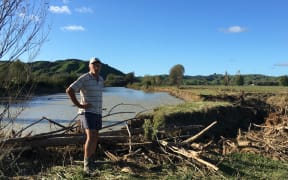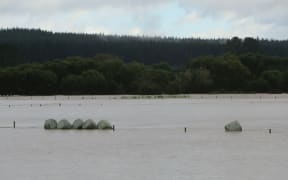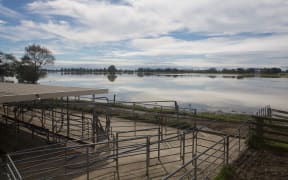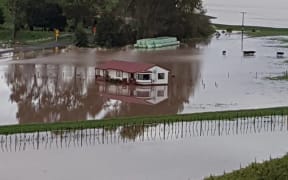Bay of Plenty farmers are criticising the government's response to rural flooding from Cyclone Debbie.
They are frustrated with the support and funding from government and say it is not the right kind of help.
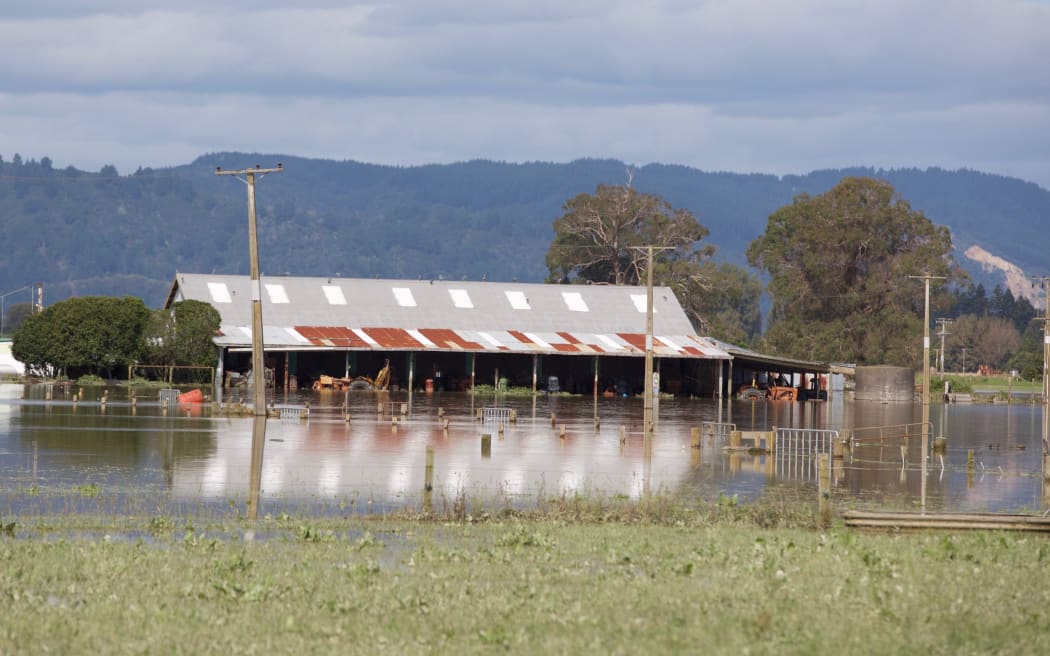
Farms around Edgecumbe faced a big cleanup after two big storms. Photo: RNZ / Leon Menzies
Because the government declared the flood a medium-scale adverse event farmers could get help from teams of workers and apply for tax relief and funding.
Darryl Jensen, the Federated Farmers Bay of Plenty provincial president, has been co-ordinating the rural help and support for farmers with the Rural Support Trust since the floods.
Mr Jensen said some of the government's support was not hitting the mark.
"A lot of farmers are a little bit frustrated with what's happening, as far as government funding from the rural sector."
Accessing money for farmers in need has been difficult, Mr Jensen said.
"Farmers wanting to maybe access a bit of support and help... there's not a lot that has come as far as the rural community at this stage so we're trying to find avenues to help farmers out where we can.
"Some farmers have horrendous bills from this recovery to get their farms up and running... there certainly is frustration out there from that point of view."
Mr Jensen said it would take some farmers at least three to five years to get back on track.
'It's been slow'
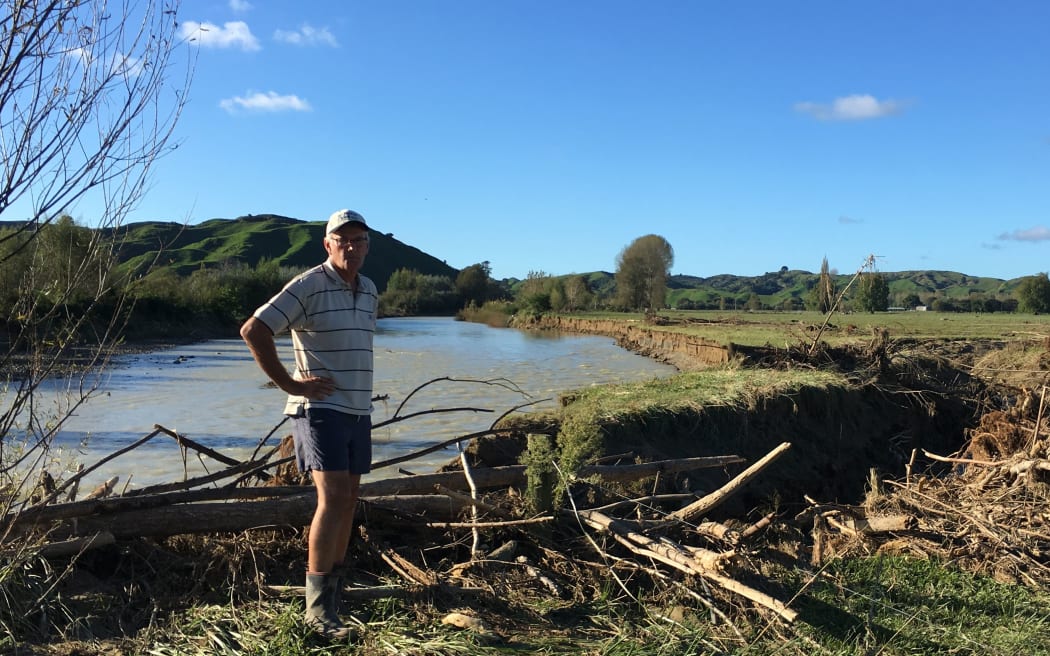
Kevin Clark next to some of the flood damage on his property next to the Waimana River in April. Photo: RNZ / Alexa Cook
On the banks of the Waimana river near Whakatane, Kevin Clark and his family have had land, fences, farm races and riverbanks destroyed by flooding in the past six weeks.
He said the government and council response after Cyclone Debbie and Cook had moved at a slow pace.
"It's been slow... you can't expect people to be waiting around to action an event like that at the drop of a hat, but certainly some of the support that we've had or packages have been a little bit late coming.
"Most of the clean-up job on our farm gets actioned within a few days of the flood and through over the prevailing weeks.
"Realistically we only got offered Taskforce Green assistance about two weeks ago when most of that clean-up work had been completed by our staff and now it's more into specialised work that Taskforce Green are skilled enough to do."
The main infastructure still to fix were farm tracks that had been scoured out and the river bank which had collapsed in places, Mr Clark said.
He was working with the council this week to try and get a plan and consent to strengthen the river and stop it swallowing more land.
But a lot of the farm and land damage was not covered by insurance, Mr Clark said.
"Cyclone Cook wiped out a lot of trees on the farm, our initial response to that was to get in and restore access to everywhere but we've still got a lot of trees down. We've also lost the roof off a couple of farm buildings, we're working with insurance to sort that.
"We've actually been able to get some insurance for the fences - but for the re-grassing, the fertiliser, the races... all of that is uninsured. Obviously the land that we're losing on the rivers edge we get no compensation for that, so it's critical we try and minimise that land loss."
Future funds possible
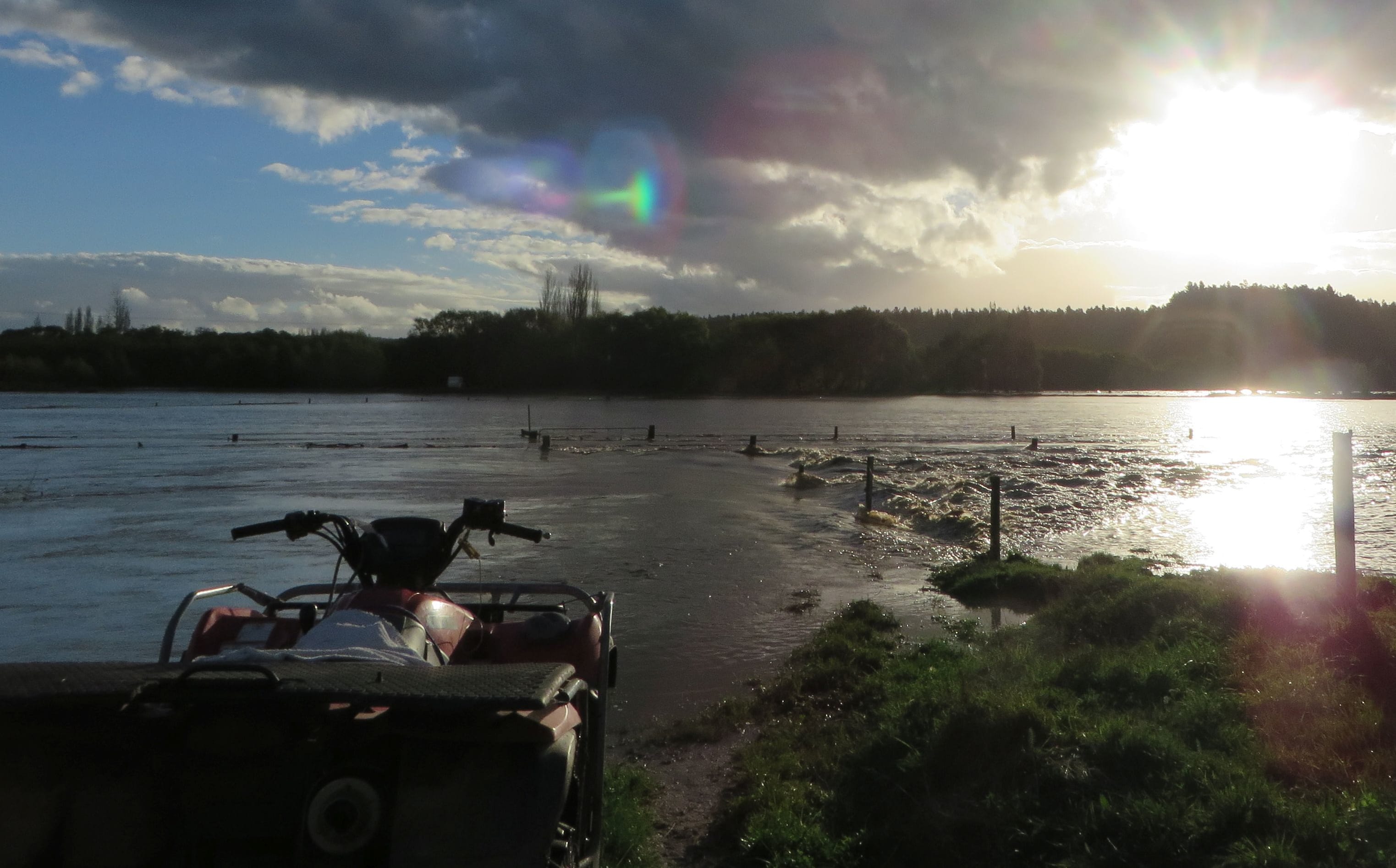
A flooded farm at Galatea. Photo: Supplied
The Ministry for Primary Industries said it was working with government agencies, agri-businesses and Rural Support Trusts on the flow of information to farmers.
Its director of resource policy, Kate Hellstrom, said since the flooding farmers have had access to teams of workers, rural assistance payments, tax flexibility and funding from rural support trusts.
Ms Hellstrom said the government was discussing additional funding that may be requested to help farmers in small ways with practical recovery measures for the future.
She said the responsibility of preparing for events such as storms and floods was on the farmer.
"Most farmers do a good job at being prepared for such events. Rural communities have strong connections.
"Volunteers as always help out in affected communities; they are also working with the Rural Support Trust and Federated Farmers to make sure those in need get boots on the ground."

